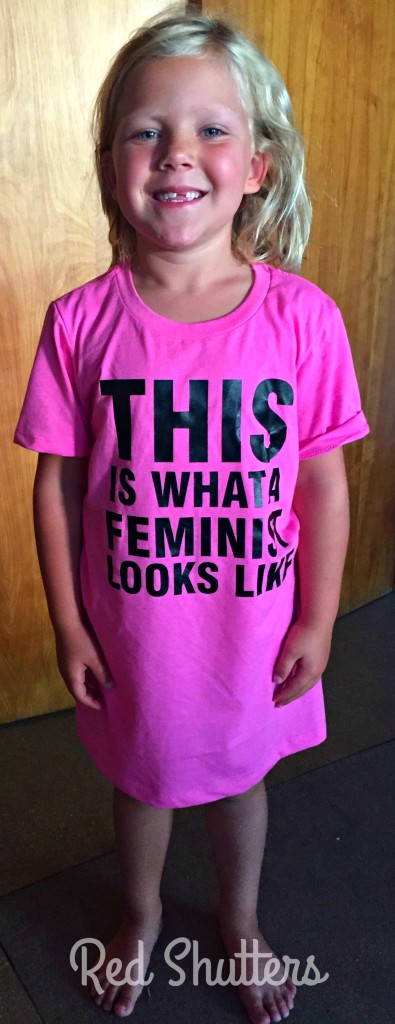The kids and I were out to dinner tonight at one of those fast and healthy Mexican places where they eat vegetables without realizing it, nothing is fried, and most items are organic. They hadn’t protested when I nixed the chips from their entrees, so I was feeling like it might be a parental win, when my daughter, G, pointed at the television (the downside of this place is that the TV is always on). “Mom! Mom! Look at those cheerleaders!” she exclaimed. “They’re wearing bikinis! In the snow!”
ESPN was on. A story featuring scantily clad cheerleaders performing at a winter football game flashed across the screen and my kids had many questions.
“Mommy, why are those cheerleaders dressed like that?” my son, R, asked. He looked concerned and not a little bit confused.
This one didn’t take a lot of thought. “Some men like to look at women like that. They like to look at their bodies only—not to think about who they are. It’s called objectification.”
G spoke up. “I am never going to be a cheerleader,” she said, almost pounding the table with her burrito. “I would never stand in front of all those people in a bikini!”
“And in the snow!” R added.
“Right,” she said.
“Do you understand what I mean by objectification?” I asked. It was a big concept for a little kids to get.
R shrugged–which is parent code for no. I tried again.
“It’s when people care only about what someone looks like, not who they are inside. Not what’s in their heart, not what they think. Just their bodies.”
The kids nodded at me, and I could see by the way they looked back at the television, that they were spinning this idea around in their heads.
After a beat, G repeated her earlier vow: “I’m really not going to be a cheerleader.”
They returned to their burritos. I sat there, thinking about how profound conversations about feminism and respect oddly fit into dinner conversations.
A few minutes later, R had another topic for my consideration.
“Mommy, what are drugs?” he asked.
We’ve talked about this topic before, so I can only imagine something came on the screen that triggered this inquiry. (Note to self: don’t sit with your back to the TV when out to dinner with your kids.)
“Well, some drugs are good. Those are the ones your doctor gives you when you’re sick. They can help you get better. You should only take medicines that your doctor gives you. Or your parents.”
“What happens if people take drugs they’re not supposed to take?”
“They get really sick. They need to take the drugs all the time. They get addicted to them.”
“What does addicted mean?”
“It means you have to do something—in this case, it’s take the drugs. The people can’t stop taking them, and it makes them sick.”
There was so much more to say about the topic of addiction and illegal drugs, but the kids wanted to try out the water machine. They lost interest in our conversation, which was fine; these topics will come up again.
I don’t remember talking with my parents about drug addiction or the objectification of women when I was little kid. What my kids are exposed to at six and eight years old is so different from what I saw and talked about when I was their age. R and G are exposed to so many more profound topics at such an early age. And they throw out deep questions at unexpected moments. I’m hoping it means the lessons my husband and I are trying to impart will imprint deeper, and will make an impact that will lead them down a path where they make good choices.
I also wonder what they would have asked me if I let them get the chips.

